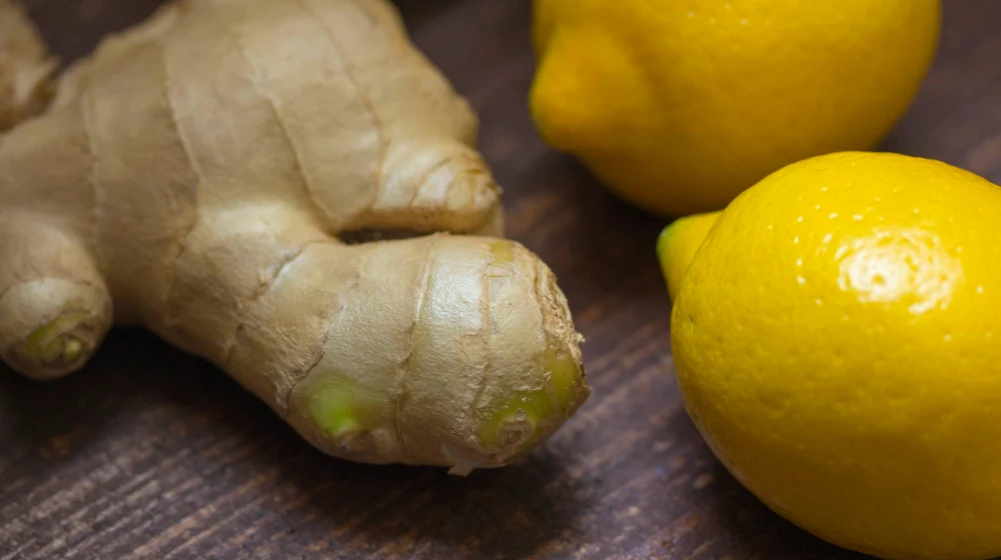Hey there,
You might have heard the term PCOS and PCOD, and somebody who might be suffering with this disorder and are now curious to know more about it, aren’t you?
Understanding, PCOD (Polycystic Ovary Disease) and PCOS (Polycystic Ovary Syndrome) are related
conditions that affect the ovaries, but they are not the same thing. Let us explore the differences between the two:
PCOD (Polycystic Ovary Disease): PCOD is a condition characterised by the presence of multiple small cysts in the ovaries. These cysts are not true cysts but rather immature follicles that have not developed properly and failed to release an egg during the menstrual cycle. PCOD is primarily an ultrasound-based diagnosis, and the criteria for diagnosing PCOD include the presence of at least 12 small follicles in each ovary, an ovary volume greater than 10 cm³, and other specific hormonal and clinical criteria.
PCOS (Polycystic Ovary Syndrome): PCOS is a broader syndrome that involves not only the presence of cysts on the ovaries but also includes various metabolic and hormonal abnormalities. It is considered a hormonal disorder that affects women of reproductive age. PCOS is diagnosed based on a combination of signs and symptoms, including:
Irregular menstrual cycles: Women with PCOS may have infrequent, prolonged, or absent
menstrual periods.
Hyperandrogenism: Elevated levels of male hormones (androgens) in the body can lead to
symptoms like excess facial and body hair, acne, and male-pattern baldness.
Polycystic ovaries: The presence of multiple small cysts on the ovaries, as seen in PCOD, is often
observed in PCOS, but it is not the defining feature.
Other metabolic issues: PCOS is associated with insulin resistance, which can lead to weight gain
and an increased risk of type 2 diabetes.
In summary, PCOD refers specifically to the presence of cysts on the ovaries, while PCOS is a
broader syndrome that includes hormonal imbalances, metabolic issues, and various other
symptoms beyond just the presence of ovarian cysts.
1. Building ‘ABS’ trend in co-relation with PCOS-
Building abs and managing PCOS can be a challenging combination, but it is certainly possible with the
right approach. Here are some key considerations for individuals with PCOS who are interested in building abdominal muscles. The trend of building abs, often associated with achieving a toned and defined abdominal area, has gained popularity in recent years due to increased emphasis on fitness and body aesthetics. However, for individuals with PCOS, achieving visible abs can be more challenging due to the hormonal imbalances and metabolic issues associated with these conditions.
Here are some important points to consider regarding the trend of building abs and its relationship with PCOS:
Hormonal Imbalances: PCOS is characterized by hormonal imbalances, including elevated
androgens (male hormones) and insulin resistance. These hormonal factors can contribute to
increased fat storage around the abdominal region, making it more difficult to achieve visible abs.
Fat Distribution: Women with PCOS often experience an “apple” body shape, where excess weight
is carried around the abdomen rather than the hips and thighs. This pattern of fat distribution can
make it challenging to achieve flat stomach and visible abs, even with a well-developed core.
Individual Variability: Each person’s body is unique, and genetics play a significant role in
determining how and where fat is stored. Some individuals with PCOS may find it more achievable
to build visible abs, while others may have a harder time due to their body’s natural tendencies.
Focus on Overall Health: Instead of solely focusing on building abs, individuals with PCOS should
prioritize overall health and well-being. Managing PCOS through a balanced diet, regular exercise,
and lifestyle changes is more important for long-term health than achieving a specific body
aesthetic.
Exercise for Strength and Fitness: Engaging in regular exercise, including core-strengthening
exercises, is beneficial for women with PCOS. Building core strength can help improve posture,
reduce back pain, and enhance overall fitness.
Sustainable Approaches: Extreme dieting or excessive exercise to achieve visible abs may not be
sustainable or suitable for individuals with PCOS. Instead, focusing on a balanced, moderate, and
consistent approach to exercise and nutrition is key.
Embrace Body Positivity: It is essential to embrace body positivity and understand that everybody
is different. A focus on body acceptance, self-love, and overall health is more important than
conforming to societal trends or unrealistic body ideals.
Ultimately, the trend of building abs should not overshadow the importance of managing PCOS and promoting overall health and well-being. Consult with your nutritionist, including a registered dietitian and a fitness trainer, to develop a personalised exercise and nutrition plan that aligns with your health goals and PCOS management. Remember that health and fitness are multifaceted, and visible abs are not the only measure of a healthy and strong body.
2. Why you need to avoid ‘WHITE’ foods in PCOS?
In managing PCOS, diet plays a crucial role. Some general guidelines suggest avoiding certain types of
foods, including “white foods.” The term “white foods” typically refers to refined carbohydrates and sugars, which are often stripped of their fibre and nutrients during processing. These foods can cause rapid spikes in blood sugar and insulin levels, which can exacerbate insulin resistance, a common feature of PCOS. Insulin resistance is linked to hormonal imbalances and can worsen symptoms.
Here are some white foods to avoid or limit in your diet if you have PCOS:
White Rice: White rice is a refined carbohydrate that has had its bran and germ removed, resulting
in a loss of essential nutrients and fibre. Opt for healthier alternatives like brown rice or quinoa,
which have more fibre and nutrients.
White Bread: Like white rice, white bread is made from refined flour, and it lacks the beneficial fibre
found in whole grain bread. Choose whole grain or whole wheat bread instead.
White Pasta: Traditional white pasta is made from refined flour, providing little nutritional value.
Consider using pasta made from whole wheat, chickpeas, lentils, or other alternatives for more
nutrients and fibre.
White Potatoes: While potatoes themselves are not inherently bad, white potatoes have a high
glycaemic index, meaning they can cause a rapid increase in blood sugar. Sweet potatoes or other
non-starchy vegetables are better choices.
Sugary Sweets and Desserts: Avoid or limit consumption of sugary treats like cakes, cookies,
candies, and other processed desserts. These high-sugar foods can lead to blood sugar spikes
and contribute to insulin resistance. Instead of consuming these white foods, focus on incorporating nutrient-dense, low-glycaemic foods into your diet. Some recommendations include:
Whole grains: Choose whole grains like quinoa, oats, barley, and whole wheat over refined grains.
Fruits and vegetables: Opt for a variety of colourful fruits and non-starchy vegetables, which
provide essential vitamins, minerals, and fibre.
Lean proteins: Include sources of lean protein like poultry, fish, tofu, beans, and legumes.
Healthy fats: Incorporate sources of healthy fats like avocados, nuts, seeds, and olive oil into your
diet.
It is essential to work with your Dietician to create a personalized diet plan that meets your specific needs and health goals. Dietary changes, combined with regular exercise and other lifestyle modifications, can be helpful in managing PCOS and improving overall health.
3. Does PCOS affects women of colour differently?
Skin colour is primarily determined by the amount and type of melanin present in the skin. Melanin is a
pigment produced by specialized cells called melanocytes. There are different forms of melanin, which
influence the colour and tone of an individual’s skin. The three broad categories of skin colours are:
White: People with fair skin have lower levels of melanin in their skin. Their skin may appear lighter or paler in colour.
Brown: Individuals with brown skin have moderate levels of melanin, resulting in a tan or brownish
complexion.
Black: People with black skin have higher levels of melanin, leading to a darker complexion.
The development of skin colour is mainly influenced by genetics. Different populations and ethnic groups
have varying levels of melanin production, which determines their natural skin colour. Other factors, such
as sun exposure, can also influence skin colour over time. Sun exposure leads to increased melanin
production as a protective response to ultraviolet (UV) radiation. This is why individuals with lighter skin can develop a tan when exposed to the sun.
In relation to PCOS (Polycystic Ovary Syndrome) or PCOD (Polycystic Ovary Disease), these hormonal
disorders do not directly cause changes in skin colour based on their definitions. However, PCOS can lead to some skin-related symptoms in certain cases:
Acne: PCOS can cause hormonal imbalances, including elevated androgen levels, which may lead to acne breakouts, especially along the jawline, chin, and upper neck.
Hirsutism: Excessive hair growth (hirsutism) is another possible symptom of PCOS, mainly due to elevated androgen levels. This can lead to darker or thicker hair growth in areas typically more associated with male- pattern hair growth, such as the face, chest, and abdomen.
Acanthosis Nigricans: This condition is characterized by dark, thickened patches of skin, commonly
occurring in skin folds like the neck, armpits, and groin. It can be associated with insulin resistance, which is a common feature of PCOS.
It is important to note that PCOS affects individuals of all skin colours, and its impact on the skin may vary between individuals. Managing PCOS through a balanced lifestyle, including proper nutrition, regular exercise, and medical treatment, if necessary, can help address some of the skin-related symptoms associated with the condition.
4. GINGER- at some extent benefitting to the symptoms of PCOS-
Ginger is a popular spice with numerous potential health benefits, and some research suggests that it may have positive effects for individuals with PCOS. However, it is important to note that ginger alone is not a cure for PCOS, and its effects on these conditions are still being studied.
Here are some ways in which ginger may be relevant in treating PCOS:
Anti-Inflammatory Properties: Ginger contains bioactive compounds with anti-inflammatory properties.
Inflammation is often associated with PCOS, and reducing inflammation may help manage symptoms and improve overall health.
Insulin Sensitivity: Some studies suggest that ginger may help improve insulin sensitivity, which is a crucial aspect of managing PCOS as insulin resistance is a common feature of the condition.
Antioxidant Effects: Ginger is rich in antioxidants, which can help protect cells from oxidative stress and
reduce damage caused by free radicals. This may be beneficial for women with PCOS, as oxidative stress is believed to play a role in the development of these conditions.
Menstrual Cycle Regulation: Some traditional practices and alternative medicine systems suggest that
ginger may help regulate menstrual cycles. However, more research is needed to establish a clear link
between ginger and menstrual cycle regulation in the context of PCOS.
It is important to understand that while ginger may have potential benefits for individuals with PCOS, it is not a substitute for medical treatment or other lifestyle interventions.
If you are considering using ginger or any other herbal remedy to support PCOS management, it is essential to discuss this with your Dietician. They can provide personalized advice based on your specific health condition, medical history, and any medications you may be taking to ensure it is safe and appropriate for you. As with any supplement or herbal remedy, moderation is key, and it is best to use ginger as part of a well-rounded diet and lifestyle approach in PCOS management.
5. One major misconception – Tea OR Coffee with PCOS?
There are several misconceptions surrounding PCOS and its relationship with tea and coffee consumption.
Caffeine Content: Both tea and coffee contain caffeine, a stimulant that can affect hormone levels and, in some cases, exacerbate symptoms related to PCOS. Excessive caffeine intake may disrupt hormonal
balance and affect insulin sensitivity, which is a concern for women with PCOS. However, moderate
consumption of caffeine may not be harmful for everyone. It’s essential to be mindful of your body’s
response to caffeine and consult a healthcare provider for personalized advice.
Insulin Sensitivity: PCOS is often associated with insulin resistance, a condition where the body’s cells do not respond properly to insulin. Some studies suggest that compounds found in green tea might improve insulin sensitivity, potentially benefiting women with PCOS. Similarly, coffee consumption has been associated with a reduced risk of type 2 diabetes, a condition linked to insulin resistance. However, the effects can vary from person to person.
Hydration: Staying hydrated is crucial for overall health, including for women with PCOS. Both tea and
coffee can contribute to your daily fluid intake. However, excessive consumption, especially if you add a lot of sugar or high-fat dairy products, might not be beneficial.
Herbal Teas: Herbal teas, such as spearmint tea, have been studied for their potential benefits in managing PCOS symptoms. Spearmint tea has shown some promise in reducing hirsutism (excess hair growth) and improving hormonal balance in women with PCOS. Always consult a healthcare provider before using herbal remedies as they can interact with medications and have varying effects on individuals.
Individual Responses Vary: It is important to note that individual responses to tea and coffee can vary
widely. Some women with PCOS find that these beverages do not negatively impact their symptoms, while others may notice adverse effects. It is essential to listen to your body and adjust your consumption based on how you feel.
In summary, there is no one-size-fits-all answer regarding tea or coffee consumption for women with PCOS. Moderation is key, and it is advisable to consult your Dietitian who can provide personalised recommendations based on your specific health needs and goals.
BENEFITS OF TEA OR COFFEE IN PCOS
- Antioxidant Properties: Both tea and coffee are rich in antioxidants, which can help combat oxidative stress in the body. Antioxidants may play a role in reducing inflammation and improving overall health, which can be beneficial for individuals with PCOS, as this condition is often linked to chronic low-grade inflammation.
- Weight Management: Many women with PCOS struggle with weight management. Some studies have indicated that caffeine, found in both tea and coffee, can boost metabolism, and promote fat oxidation. However, individual responses to caffeine vary, and excessive consumption should be avoided.
- Reduced Risk of Type 2 Diabetes: Some research suggests that regular consumption of tea and coffee might be associated with a reduced risk of developing type 2 diabetes. Since women with PCOS are at a higher risk of developing diabetes due to insulin resistance, this potential benefit could be relevant for them.
- Mental Health Benefits: Both tea and coffee contain compounds that can have a positive impact on
mental alertness and mood. Managing stress and mental well-being is crucial for women with PCOS, as stress can exacerbate symptoms. Moderate consumption of tea or coffee might provide a mental boost for some individuals. - Herbal Teas: Certain herbal teas, such as spearmint tea, have shown promise in reducing symptoms associated with PCOS, including hirsutism (excess hair growth) and hormonal imbalances. Spearmint tea is thought to have anti-androgenic properties, which means it might help reduce the levels of male hormones (androgens) in the body, which are often elevated in women with PCOS.
It is important to note that while these potential benefits exist, individual responses can vary. Some women with PCOS may find that caffeine exacerbates their symptoms, such as anxiety or insomnia. It is crucial to listen to your body and consult with your Dietitian to determine what works best for your specific situation.
*Few examples of tea and coffee using Ginger as an herbal remedy
Certainly! Ginger is a versatile ingredient that can add a warm and spicy flavour to both tea and coffee.
Here are a few examples of how you can incorporate ginger into your tea and coffee:
Ginger Tea’s:
1. Ginger Lemon Tea:
Boil water and add freshly grated ginger.
Let it steep for a few minutes.
Add a teaspoon of honey and a slice of lemon for extra flavour.
2. Ginger Green Tea:
Prepare green tea as usual.
Add a few slices of fresh ginger while steeping.
Optionally, you can add a bit of honey for sweetness.
3. Masala Chai with Ginger:
Boil black tea leaves with water, milk, and spices like cinnamon, cardamom, and cloves.
Add grated ginger for an extra kick.
Sweeten with sugar or your preferred sweetener.
Ginger Coffee’s:
1. Gingerbread Coffee:
Brew a cup of your favourite coffee.
Add a pinch of ground ginger, a sprinkle of cinnamon, and a touch of vanilla extract.
Top it with whipped cream for a delightful gingerbread flavour.
2. Spiced Ginger Coffee:
Brew a strong cup of coffee.
Add a small piece of fresh ginger or a pinch of ground ginger. Stir in a bit of nutmeg and clove for a spiced coffee experience.
3. Ginger Latte:
Prepare a shot of espresso or a strong cup of coffee.
Froth some milk (dairy or plant-based) and add it to the coffee.
Stir in a teaspoon of ginger syrup or a small piece of grated ginger.
Garnish with a sprinkle of cinnamon or cocoa powder.
Remember, the key to using ginger is to adjust the quantity according to your taste preferences. Enjoy experimenting with these recipes and I would love to hear about your experiences. How does it really affect you and what is your next step?




